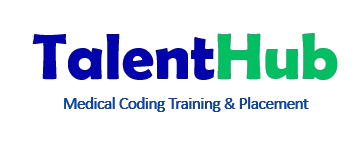Course Description
Medical coding is the process of translating healthcare diagnoses, procedures, and services into standardized codes for billing, record-keeping, and insurance purposes. With the rapid growth of healthcare services, increasing regulatory compliance, and widespread adoption of electronic health records (EHR), the demand for skilled medical coders is rising globally. Hospitals, clinics, insurance companies, and billing firms in countries like the USA, India, and UAE are actively seeking qualified coders to ensure efficient revenue cycle management and reduce claim denials. Life science graduates (freshers) are eligible to pursue a career in this field, making it a promising option with strong career growth opportunities.
What You’ll Learn From This Course
- Language of Medicine (Medical terminology, Anatomy, Physiology, Pathology, Lab techniques, etc.).
- ICD-10 CM Coding Conventions, General Coding and Chapter Specific Guidelines.
- Introduction CPT-4 Procedure Coding Terminologies, HCPCS Guidelines and Modifiers Concepts.
- Introduction HIPAA, HITECH and Coding Compliance
- Revenue Cycle Management and Plenty of Sample Coding Scenarios.
- Duration 30 days
Demand of medical Coding
Medical coding is in high demand globally due to the rapid growth of healthcare services and the need for accurate billing and reimbursement.
Increasing regulatory compliance and the widespread adoption of electronic health records (EHR) drive the need for skilled coding professionals.
Hospitals, clinics, insurance companies, and billing firms from USA, India and UAE are continuously seek qualified coders to ensure efficient revenue cycle management and minimize claim denials.







